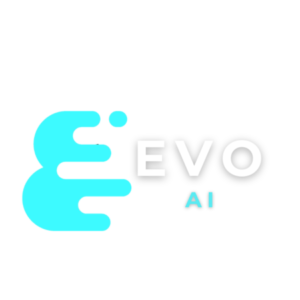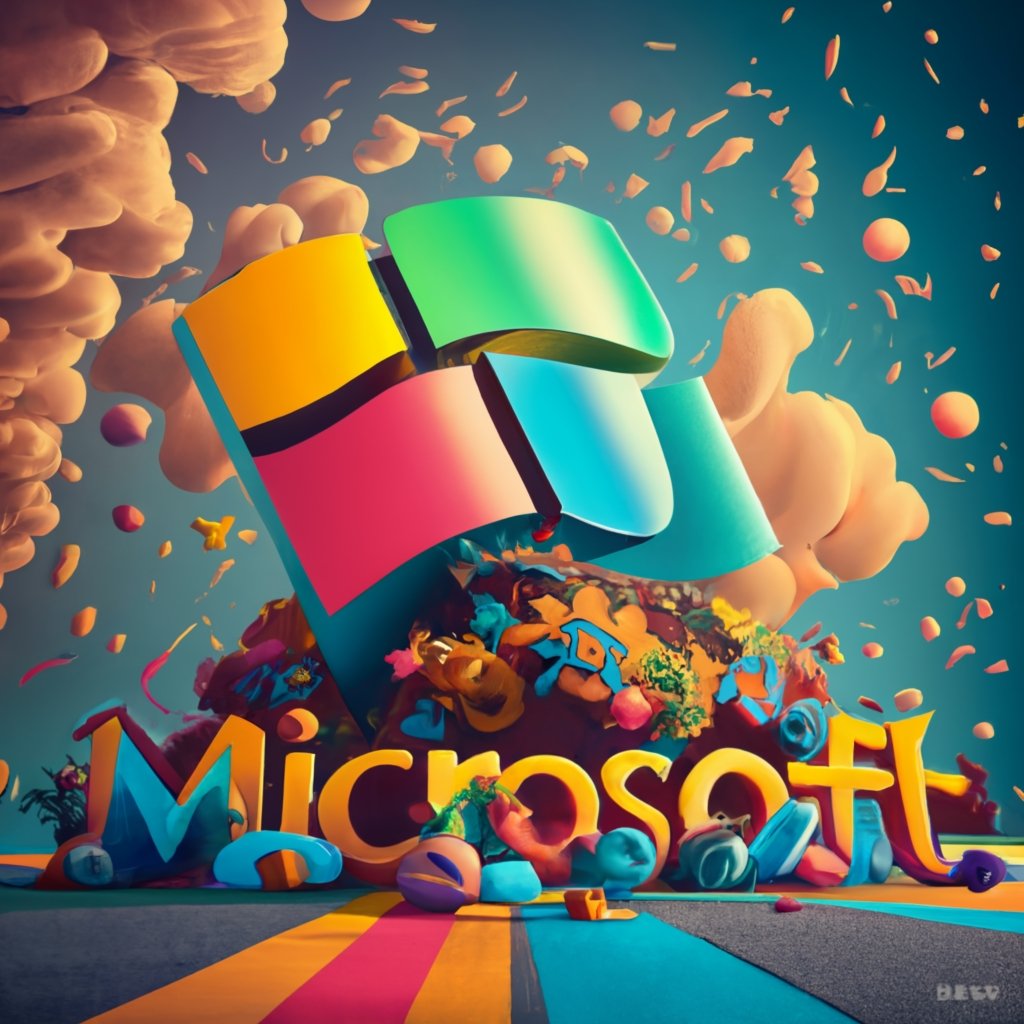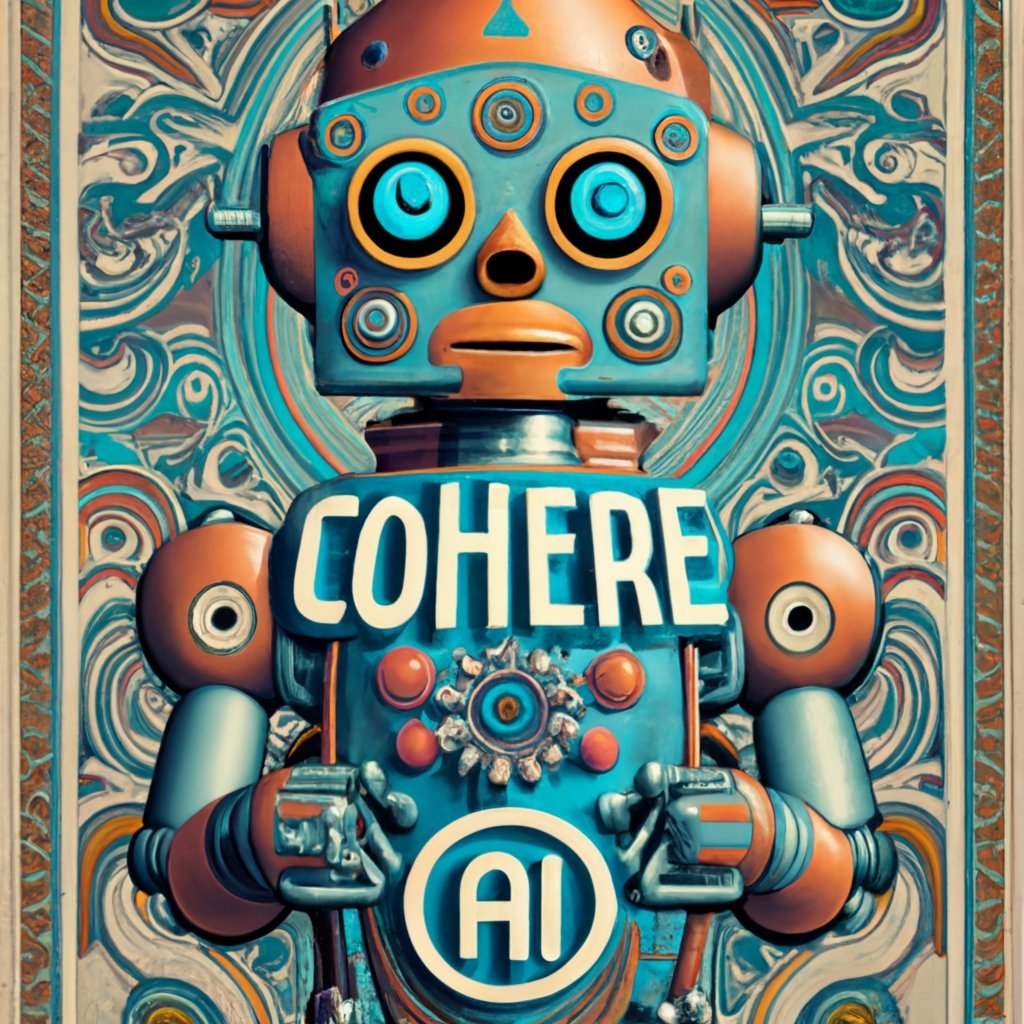Mistral introduces Mixtral 8x7B Language Model outperforming OpenAI’s GPT 3.5

Microsoft Research introduces Phi-2 2.7B “Small” LLM
Introduction
- Microsoft Research has released Phi-2, a 2.7 billion-parameter language model, as part of its Phi series of small language models (SLMs).
- Phi-2 demonstrates exceptional reasoning and language understanding capabilities, showcasing state-of-the-art performance among base language models with less than 13 billion parameters.
Features
- Model Size: Phi-2 is a 2.7 billion-parameter model.
- Training Data Quality: Emphasis on “textbook-quality” data, including synthetic datasets for common sense reasoning and general knowledge, augmented with high-quality web data.
- Knowledge Transfer: Utilizes scaled knowledge transfer from Phi-1.5 (1.3 billion parameters) to Phi-2, enhancing performance and accelerating training convergence.
- Transformer-based Architecture: Phi-2 employs a next-word prediction objective, common in Transformer models.
Performance Comparison
- Benchmark Achievements:
- Outperforms models up to 25x larger, including the Llama-2-70B model, in multi-step reasoning tasks like coding and math.
- Surpasses the performance of Mistral and Llama-2 models at 7B and 13B parameters on various benchmarks.
- Matches or outperforms Google Gemini Nano 2, despite being smaller in size.
- Safety Scores: Demonstrates better behavior regarding toxicity and bias compared to existing models, as evidenced in the ToxiGen benchmark.
Training Details
- Training Duration: Trained for 14 days on 96 A100 GPUs.
- Data Source: Trained on 1.4 trillion tokens from a mix of Synthetic and Web datasets for NLP and coding.
- Model Alignment: Phi-2 is a base model without alignment through reinforcement learning from human feedback (RLHF) or instruct fine-tuning.
Evaluation
- Benchmarks: Evaluated on Big Bench Hard (BBH), commonsense reasoning, language understanding, math, and coding benchmarks.
- Internal Testing: Also tested on Microsoft’s internal proprietary datasets and tasks, showing consistent outperformance over Mistral-7B and Llama-2 models.
Conclusion
- Phi-2 represents a significant advancement in the field of small language models, achieving remarkable performance with a relatively smaller parameter count.
- Its strategic training approach and focus on high-quality data demonstrate the potential of smaller models in achieving capabilities similar to larger models.
- Phi-2’s availability on Azure AI Studio model catalog encourages further research and development in language models, particularly in areas of mechanistic interpretability and safety improvements.
Other AI News
-
Microsoft has expanded its Azure AI Studio to include open-source LLMs such as LlaMA2
Microsoft has expanded its Azure AI Studio significantly by including Meta Platforms’ open-sourced AI model Llama 2 and OpenAI’s GPT-4 Turbo with Vision as part of its “model-as-a-service” (MaaS) offerings. This move allows customers to use these AI models on-demand over the web with minimal setup, without the need for installation on their own cloud server space. John Montgomery, Microsoft Corporate Vice President of Program Management for its AI Platform, explained that this service operates models as API endpoints, simplifying the process for customers who prefer not to manage infrastructure. The inclusion of Llama 2 in Azure AI Studio, available in public preview, offers various model options like Llama-2-7b and Llama-2-70b, both for text generation and chat completion.
Microsoft’s decision to offer a range of Llama models alongside OpenAI’s models is a strategic move to provide more choices to Azure cloud storage and service customers. This approach gives customers a cost-effective alternative to Microsoft’s partner OpenAI’s GPT-3.5 and 4 models. Llama 2 has gained popularity as a preferred open-source option for many users and enterprises, making it a significant addition to Azure AI Studio. This expansion aligns with Microsoft CEO Satya Nadella’s strategy to diversify Microsoft’s AI investments, following recent developments with OpenAI’s leadership and board decisions.
In addition to Llama 2, Azure AI Studio now includes OpenAI’s GPT-4 Turbo with Vision, enhancing the AI’s capabilities to analyze and describe photos and visual material. This model is already being used by customers like Instacart and WPP. Azure AI Studio also provides tools for fine-tuning all the models offered, further enhancing its appeal to customers. As the AI cloud wars intensify, Microsoft’s Azure AI Studio is poised to add more models, potentially including other open-source models like Mistral or Deci. The recent inclusion of these models in Azure AI Studio reflects Microsoft’s commitment to offering a diverse range of AI tools and services, catering to the evolving needs of businesses and developers in the AI space.
-
Meta introduces advanced AI features for its Ray-Ban smart glasses
Meta is introducing advanced AI features for its Ray-Ban smart glasses, starting with an early access test. These multimodal AI features enable the glasses to provide information about objects and environments using their camera and microphones. Mark Zuckerberg demonstrated this capability in an Instagram reel, where he asked the glasses to suggest pants matching a shirt, and the AI assistant responded with appropriate suggestions. The glasses can also translate text and assist with image captions.
The AI assistant’s capabilities were further showcased by Meta’s CTO Andrew Bosworth, who demonstrated its ability to describe objects and provide translations and summarizations. This test phase is currently limited to a small number of users in the US who opt into the program. These features represent a significant step in wearable AI technology, offering practical, everyday applications for users. The Ray-Ban smart glasses’ AI capabilities align with similar features seen in products from Microsoft and Google, indicating a growing trend in integrating AI into wearable technology.
-
Lightning AI lunches Lightning AI Studios, a cloud-based platform designed for deploying AI products at scale
Lightning AI, known for its open-source framework PyTorch Lightning, has launched Lightning AI Studios, an all-in-one cloud-based platform for building and deploying AI products at scale. This platform is designed to fundamentally change how developers work by abstracting non-core activities and providing a single interface for all AI development needs. It offers pre-built templates, scalable CPU to GPU capabilities, and integrated tools, allowing deployment in various environments, including the user’s cloud, Lightning AI’s cloud, or a local GPU cluster.
Founder and CEO William Falcon describes Lightning AI Studios as an operating system for AI developers, akin to a collaborative cloud-based desktop with all necessary apps in one place. This approach is likened to the transition from using a flip phone to an iPhone, signifying a significant evolution in tooling for machine learning. The platform, which requires no setup, enables AI developers to start building AI products with one click on one screen. It includes a marketplace of apps for building, training, fine-tuning, and deploying models. Lightning AI Studios aims to compete with established cloud products like Google Colab and AWS Sagemaker, offering a more advanced, cloud-centric experience. The platform has four pricing tiers, catering to individual students, researchers, hobbyists, professional engineers, startups, teams, and larger organizations requiring enterprise-grade AI. Early access to Lightning AI Studios is available through their website.
-
Tenyx launches its Fine-tuning Service, addressing a critical challenge in AI known as catastrophic forgetting
Tenyx has announced the launch of its Fine-tuning Service, addressing a critical challenge in AI known as catastrophic forgetting. This service is designed to help businesses customize and fine-tune Large Language Models (LLMs) for their specific needs without losing foundational knowledge or compromising safety measures. Traditional fine-tuning techniques often lead to the unintentional loss of previously learned capabilities and degradation of safety features established by reinforcement learning from human feedback (RLHF). However, Tenyx’s approach, based on a novel mathematical interpretation of geometric representations formed during initial LLM training, overcomes these drawbacks.
The Tenyx Fine-tuning Service enhances the retention of prior knowledge and reasoning abilities while maintaining RLHF protection. It outperforms popular enterprise and open-source fine-tuning algorithms in safety, proficiency, and knowledge retention. For instance, after fine-tuning, Tenyx showed only an 11% reduction in safety features compared to more significant reductions by other models, and it was 65% more proficient than OpenAI’s GPT 3.5 Turbo. Additionally, Tenyx mitigated catastrophic forgetting with only a 3% loss of knowledge. This service aligns with recent regulatory changes, such as the White House executive order on Safe, Secure, and Trustworthy AI, and is now available for businesses to sign up as a trial, with pricing to be announced in the future.
-
Essential AI raises $56.5 million in Series A funding backed by Google, NVIDIA and AMD
Essential AI, a San Francisco-based startup, has emerged from stealth with a significant $56.5 million in Series A funding, backed by tech giants Google, Nvidia, and AMD, along with other investors. Co-founded by Ashish Vaswani and Niki Parmar, former collaborators at Google known for co-authoring a research paper on the Transformer architecture, Essential AI aims to revolutionize how people work with AI. The company plans to launch AI products that enhance human-computer collaboration, potentially offering ready-to-use AI solutions for enterprises to boost productivity.
While specific details of Essential AI’s upcoming products are not yet disclosed, the company’s focus is on developing large language model (LLM)-driven, full-stack AI products. These products are expected to automate time-consuming workflows and adapt quickly to increase productivity. The company’s vision includes making data analysts ten times faster and enabling business users to become independent, data-driven decision-makers. With the current trend of companies seeking AI-driven efficiencies, Essential AI’s upcoming offerings, backed by industry leaders, could significantly impact enterprise workflows. The company is actively hiring across various roles to innovate and deliver the best user experience with its enterprise-centric LLM products.
-
The European Union’s AI Act allows open-source LLMs like Mistral to strive in a world dominated by OpenAI
The European Union’s AI Act, a significant piece of legislation aimed at regulating AI technologies, was recently passed following extensive negotiations. However, the Act, which requires high-impact general purpose AI models to adhere to transparency standards and imposes additional requirements on high-risk systems, quickly lost media attention to the achievements of Mistral, a Paris-based AI startup. Mistral, known for its open-source model approach, recently released a new Large Language Model (LLM) with just a torrent link and announced a substantial $415 million funding round, valuing the company at about $2 billion.
Mistral’s activities, including its successful lobbying against certain regulatory measures in the EU AI Act, highlight the ongoing debate over AI sovereignty in the European Union. The Act’s provisions, which offer broad exemptions to open source models except those posing systemic risks, reflect the complex balance between fostering AI innovation and imposing necessary regulations. As AI continues to advance rapidly, regulators worldwide are challenged to keep pace with the technology without stifling innovation, a task underscored by the vibrant AI research community and companies like Mistral that continue to push the boundaries of AI development.
-
Cohere AI launches “build-your-own connectors,” feature allowing businesses to integrate their own data from third-party applications like Slack and Google Drive with Cohere
Cohere, an AI company competing with OpenAI, has launched “build-your-own connectors,” a new feature that allows businesses to integrate their company data from third-party applications like Slack and Google Drive into Cohere’s Command Large Language Model (LLM). This integration, which Cohere claims to be the first of its kind, follows their achievement of being the first AI company to offer fine-tuning across all four major cloud providers. The connectors enable businesses to build AI assistants on Cohere’s platform that can leverage information from a wide range of tools used in daily work, providing contextually relevant and accurate responses.
The introduction of connectors represents a significant advancement in the application of AI in business, allowing enterprise models to securely access company data across numerous third-party applications. This capability is a game-changer for AI’s delivery to businesses, enhancing the accuracy of responses and minimizing errors. Cohere has also released about 100 “quick start connectors” on GitHub for popular applications, and offers full support for other third-party data stores. This development caps a significant year for Cohere, which has seen increased business inquiries and expansion following a fresh round of funding and the opening of a second headquarters in San Francisco.
-
Snapchat Plus subscribers can now generate AI-generated snaps
Snapchat Plus subscribers now have access to new AI tools that allow them to share AI-generated snaps. This feature enhancement enables users to creatively extend a photo by using AI to fill in the surrounding environment. This development is part of Snapchat’s ongoing integration of AI technology into its platform, offering subscribers more innovative ways to interact and create content within the app. The introduction of these AI capabilities reflects the growing trend of social media platforms incorporating advanced technology to enhance user experience and engagement. As AI continues to evolve, it’s likely that Snapchat and similar platforms will continue to explore and integrate these technologies, further transforming the landscape of social media interaction and content creation.
-
Google Ventures (GV) appoints new general partner to back AI, open source startups
-
Google Cloud partners with Mistral AI on generative language models
Google Cloud has formed a partnership with Paris-based generative AI startup Mistral AI, enabling the distribution of Mistral’s language models on Google’s infrastructure. This collaboration, announced on Wednesday, will see Mistral AI utilizing Google Cloud’s AI-optimized infrastructure, including TPU Accelerators, to enhance the development and scaling of its large language models (LLMs). These models, known for generating text and other content, will benefit from the advanced capabilities and robust security and privacy standards of Google Cloud. Mistral AI, established by former researchers from Meta and Google, recently secured 385 million euros in funding, with contributions from notable investors like Andreessen-Horowitz and LightSpeed Ventures. This partnership and funding round underscore Mistral AI’s growing prominence in the field of AI and its commitment to leveraging Google Cloud’s technology for the advancement of its LLMs.
About The Author

Bogdan Iancu
Bogdan Iancu is a seasoned entrepreneur and strategic leader with over 25 years of experience in diverse industrial and commercial fields. His passion for AI, Machine Learning, and Generative AI is underpinned by a deep understanding of advanced calculus, enabling him to leverage these technologies to drive innovation and growth. As a Non-Executive Director, Bogdan brings a wealth of experience and a unique perspective to the boardroom, contributing to robust strategic decisions. With a proven track record of assisting clients worldwide, Bogdan is committed to harnessing the power of AI to transform businesses and create sustainable growth in the digital age.








Leave A Comment